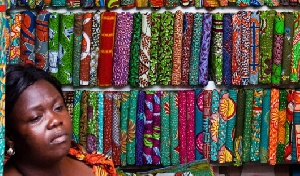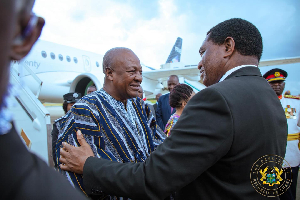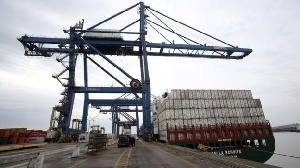The Ministry of Trade and Industry (MOTI) has cautioned textiles sellers against the sale of pirated Ghanaian textiles designs and trademarks.
Mr Appiah Donyina, the Chairman of the Ministry’s task force, issued the caution at a workshop on pirated textile in Koforidua on Tuesday for textile traders.
He said the designated entry points for importation of textiles were the Kotoka International Airport and the Tema and Takoradi ports and appealed to traders to buy from accredited distributors of textile companies whose designs they want to sell, in order to get authentic fabrics.
He said the workshop was part of a national crusade against trade in pirated Ghanaian textile designs and trademarks. Mr Donyina said the task force would not spare anybody found to be involved in the pirated Ghanaian textiles designs and trademarks adding that over 6,000 pieces of pirated fabrics had so far been destroyed nationwide.
He said the task force and for that matter the Ministry was not against the sale of imported fabrics as being speculated but explained that the traders could sell imported textiles into the country except those that were not made in Ghana but bore Ghanaian labels as well as those that were pirated Ghanaian designs.
Mr Doyina said traders of pirated textiles were as guilty as the importers and therefore advised them to desist from engaging in such illegal trade to avoid the seizure of their goods into which they had invested huge sums of money.
He said the ministry was putting measures in place to protect the local industries from collapsing in order to create employment for the many unemployed youth in the country.
The General Secretary of the Textile, Garment and Leather Employees Union of the Ghana Federation of Labour Union, Mr Abraham Koomson, said the issues of piracy of textiles were one of the major issues confronting the state at the moment.
He said the influx of pirated textiles into the country had worsened the plight of local textiles and therefore called on the traders to help the Ministry and the task force to fish out those behind such activities.
Mr Koomson said pirated textiles had become a crisis affecting the potential growth of local textile industry, adding that the industry which used to employ over 30,000 Ghanaians now employs barely 3,000 workers.
The Director of the Ghana Standards Authority (GSA), Mr Esmond Arde Acquah, said most of the pirated textiles were not properly supervised and therefore exposed users to all kinds of dangers including cancer and therefore urged the traders to be careful.
Mrs Marie Rose Sackey, a small scale textile producer, expressed concern about pirating of Ghanaian textile designs and trademarks and called on those who connived with the companies outside Ghana to duplicate the Ghanaian designs to refrain from it.
Participants also expressed concerned about the high cost of locally manufactured fabrics and urged government to reduce utility tariffs and other tax premiums for such companies to enable them manufacture less expensive fabrics which would attract more patronage.
Business News of Wednesday, 12 March 2014
Source: GNA
Ministry of Trade and Industry cautions pirated textiles
Opinions












